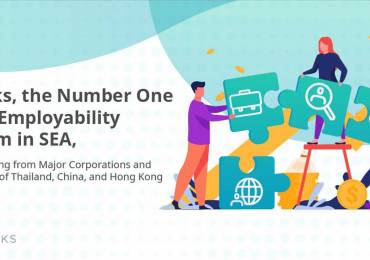New Recruitment Trends in The Post COVID-19

It’s more than a year after the COVID-19 pandemic that it has changed the working style of employees. Many companies have adapted to 100% WFH, or other working tools as well. Therefore, It is not surprising that the method of recruitment has also changed.
1. Video interviews rose 159% and allowed the recruiter to check candidate answers by replaying the video of recording interviews for further analysis
As many people probably know, at this time, all job interviews have moved online. The survey found that video interviews rose 159% compared to 2020.
While the layoffs in other sectors have been affected severely, some businesses have increased recruitment to meet the growing demand and support new and growing trends such as E-commerce and information technology.
Rapid shifts in remote working modes have forced recruiters to rely on Digital Solutions or technology implementations to increase efficiency in their business by reducing the manpower to work.
Other solutions also transformed the recruitment world, including expanding employment pools, using artificial intelligence (AI) to drive recruiting problems, and emphasizing candidates’ soft skills. These paths lead to the New Normal for Recruiters shortly.
Before COVID-19, there were rarely video interviews or many businesses rarely meet job applicants online. However, when a year has passed, they see more long-term benefits for this approach. Since switching to video interviews, P&O Ferries recruitment managers spend up to 62% less time interviewing and evaluating applicants. They also agreed that they want to continue using this format. It’s the first step in the job interview process, with 90% of recruiters saying they want to continue video interviewing after the pandemic, and 94% of job applicants have been rated 4 or 5 stars via online interviews.
The style of interview process not only saves employers time and expenses but also allows the recruiter to check candidate answers by replaying the video of recording interviews for further analysis. This makes the overall interview results of applicants more accurate and precise. Most importantly, the videos also allow multiple candidates to showcase their full potential in ways that CVs can’t.
2. Wherever we are in the world, we can work without limitations!
Since many employers plan to work remotely or continue to mix both work from home and work from office even when the epidemic ends. The barriers about work location will be eliminated. This is not only good news for the company in being able to find potential candidates anywhere on earth, but it can also be useful to recruit a more diverse workforce. This makes it possible to attract talent from all races and diverse cultures.
3. A must soft skills to have in this era
It can’t be denied that last year, many companies emphasized flexibility at every level. That’s the reason why recruiters are increasingly paying attention to the soft skills of candidates, especially good adaptability.
Soft skills mean characteristics or competence skills that allow us to work and communicate with others effectively. Examples of Soft Skills are:
- Critical Thinking and Creativity
- Communication
- Emotional Intelligence
- Management
- Collaboration
- Adaptability
As a result, the recruiters and HR have to re-evaluate the hiring process to assess factors such as time management, adaptability to work when necessary, or ability to work under highly unstable conditions. Although the epidemic is gone, these skills will benefit employers and employees in the future somehow.
A new era of recruitment has arrived. Therefore, whether it is on the applicant’s side or the employer itself, all have to follow this change and develop and align with the world that changes faster every day.

